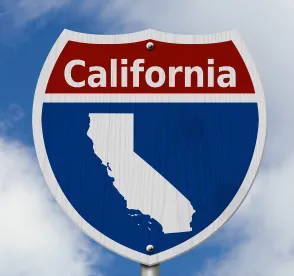There is a new, but not entirely unexpected, front in the continuing war over California Labor Code Private Attorneys General Act (PAGA) claims. On July 20, 2022, the California Supreme Court granted review in Adolph v. Uber Technologies, Inc., opening the door for a ruling that potentially may complicate the relief provided to employers by the recent decision from the Supreme Court of the United States in Viking River Cruises, Inc. v. Moriana.
As PAGA cases continue to take their toll on employers, many believed that the Supreme Court’s decision in Viking River Cruises would provide much-needed relief for employers. That’s because the Court in that case both enforced the parties’ arbitration agreement and, critically, ordered dismissal of the plaintiff’s nonindividual PAGA action, holding that statutory principles of standing precluded the employee from bringing claims on behalf of others in court while the employee was resolving an individual PAGA claim in arbitration. Viking River Cruises provided employers with an opportunity to minimize PAGA risk by implementing properly designed arbitration agreements. With the California Supreme Court accepting review in Adolph, the relief provided by Viking River Cruises may be in doubt.
In Viking River Cruises, the Supreme Court of the United States held that employees who had signed arbitration agreements could be required to arbitrate their individual PAGA claims. As a result, the Court concluded they were barred from maintaining their nonindividual—aka “representative”—PAGA actions on behalf of other aggrieved employees because they lacked the requisite statutory standing under California law. Justice Sotomayor, however, specifically wrote, in a concurring opinion, that this ruling—regardless of whether an employee who arbitrated an individual PAGA claim could still maintain a representative PAGA claim in court—was ultimately a decision of California law and a decision for the California courts. Justice Sotomayor specifically warned that “if this Court’s understanding of state law is wrong, California courts, in an appropriate case, will have the last word.”
In taking up Adolph v. Uber Technologies, the California Supreme Court may seek to countermand the Supreme Court’s finding in Viking River Cruises. In Adolph, the plaintiff expressly requested that the Supreme Court address whether California law allows an aggrieved party who is forced into arbitration to maintain, nonetheless, standing to pursue the nonindividual—and most lucrative—aspect of the employee’s PAGA claim. The California Supreme Court’s decision will have a huge impact on the continuing viability and vitality of PAGA claims. It will likely determine whether arbitration agreements can provide the same protective shield for employers in PAGA actions that they do in class action cases.
On the one hand, the California Supreme Court could hold, as the Supreme Court of the United States did, that California law requires employees bringing nonindividual actions also to have their own cases pending in court and that when an employee agrees to arbitrate their individual claims, the employee no longer can maintain the remainder of a PAGA action. Alternatively, the California Supreme Court could decide that California law provides that once an employee is an aggrieved party under PAGA, the employee is not stripped of statutory standing to bring nonindividual PAGA actions in court and may still bring them, notwithstanding the employee’s obligation to bring his or her own claims in arbitration. If the California Supreme Court goes that route, the result would likely be that employers would face a two front war: they have to defend the individual wage and hour PAGA claim in arbitration, and then, depending upon the result, still face a nonindividual PAGA action in court. In short, a key benefit for employers of the holding in Viking River Cruises would be gone.
The California Supreme Court’s decision to grant review raises a significant possibility that PAGA actions will continue to burden employers notwithstanding their implementation of arbitration agreements following the decision in Viking River Cruises. A decision in the case is not expected for months.





 />i
/>i

